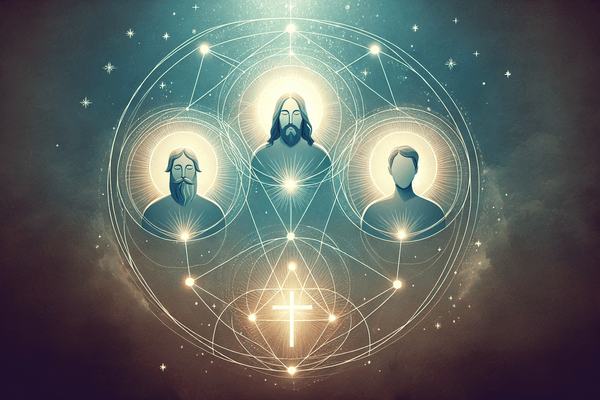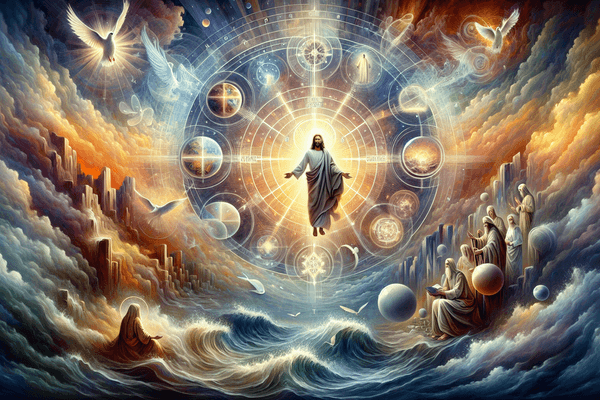The Nature of the Trinity
The doctrine of the Trinity is not merely an abstract theological concept but a vital element of Christian belief that shapes our understanding of God's identity. It asserts that God is one in essence, existing eternally as three distinct persons: the Father, the Son, and the Holy Spirit. These are not separate gods, but one God in a harmonious and indivisible unity. The Apostle Paul, in his letter to the Ephesians, captures the essence of this unity and distinction by speaking of 'one Spirit... one Lord... one God and Father of all' (Ephesians 4:4-6). This profound unity within diversity is also reflected in the baptismal formula Jesus gave His disciples, 'baptizing them in the name of the Father and of the Son and of the Holy Spirit' (Matthew 28:19). The Trinity is not a contradiction but a divine mystery that speaks to the complexity and comprehensiveness of God's nature.
Jesus Christ: His Divinity and Humanity
Central to Christian faith is the belief that Jesus Christ is both fully divine and fully human. This dual nature allows Jesus to bridge the gap between God and humanity, serving as our mediator and savior. In the Gospel of John, Jesus declares, 'I and the Father are one' (John 10:30), asserting His unity with the Father in essence and purpose. Yet, He also prays to the Father as someone distinct from Himself (John 17), illustrating His unique relationship within the Godhead. It is this relationship that the Jews found blasphemous, as Jesus not only claimed to be equal with God by calling God His own Father (John 5:17-18) but also accepted worship as God, which Thomas articulated when he encountered the risen Christ, proclaiming 'My Lord and my God!' (John 20:28).
The Role of the Holy Spirit
The Holy Spirit is often the least understood person of the Trinity, yet His role is vital in the life of the believer and the church. Jesus spoke of the Holy Spirit as the Comforter who would teach and remind His followers of all He had said (John 14:26). The Spirit empowers believers to live godly lives and equips them for service with various spiritual gifts (1 Corinthians 12:4-7). The Holy Spirit also played an active role in Jesus' earthly ministry, from His conception (Luke 1:35) to His resurrection (Romans 8:11). Through the Spirit's indwelling presence, believers experience the living God within them, transforming them into the likeness of Christ and enabling them to fulfill God's purposes in the world.
FAQ
Q: Can you prove that Jesus is the Father?
A: Christian doctrine does not teach that Jesus is the Father; rather, it distinguishes between the two within the Trinity. Jesus is the Son, distinct from the Father, yet fully united with Him in divine essence. Jesus Himself said, 'I and the Father are one' (John 10:30), which speaks to their unity, not identity as the same person.
Q: Explain the Trinity?
A: The Trinity is the Christian belief that God exists as three persons—Father, Son, and Holy Spirit—yet is one in essence. This means there is one God in three persons, not three separate gods. They are co-equal, co-eternal, and of one substance, yet maintain personal distinctions.
Q: How can Jesus be God and man?
A: The doctrine of the Incarnation states that Jesus, the Son of God, took on human flesh while maintaining His divine nature. Thus, He is both fully God and fully man, enabling Him to act as a mediator between God and humanity.
Q: What is the role of the Holy Spirit?
A: The Holy Spirit's role is to convict the world of sin, guide believers into truth, comfort, and teach. He also empowers believers for service and sanctification, distributing spiritual gifts according to His will.






